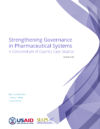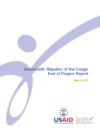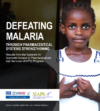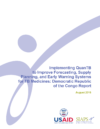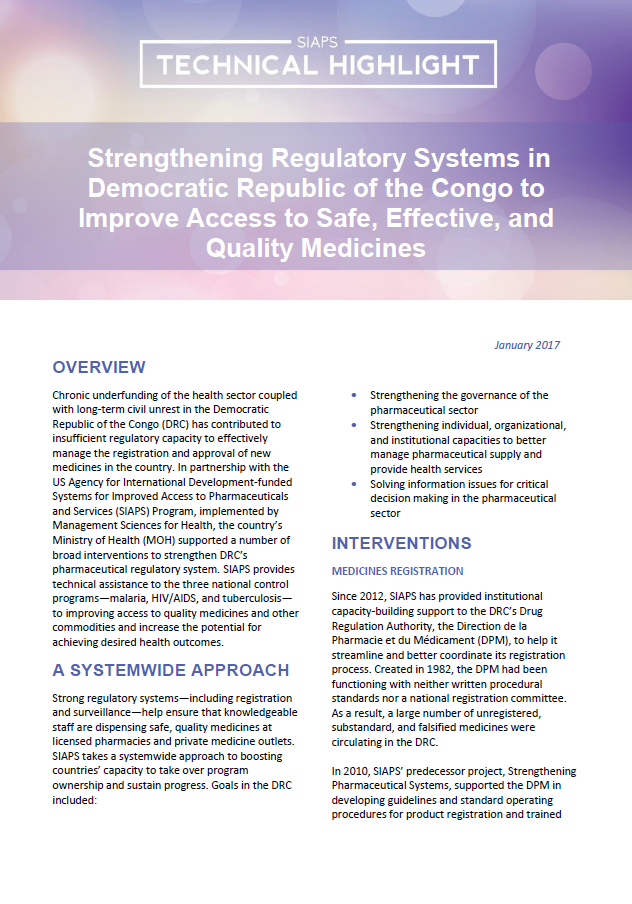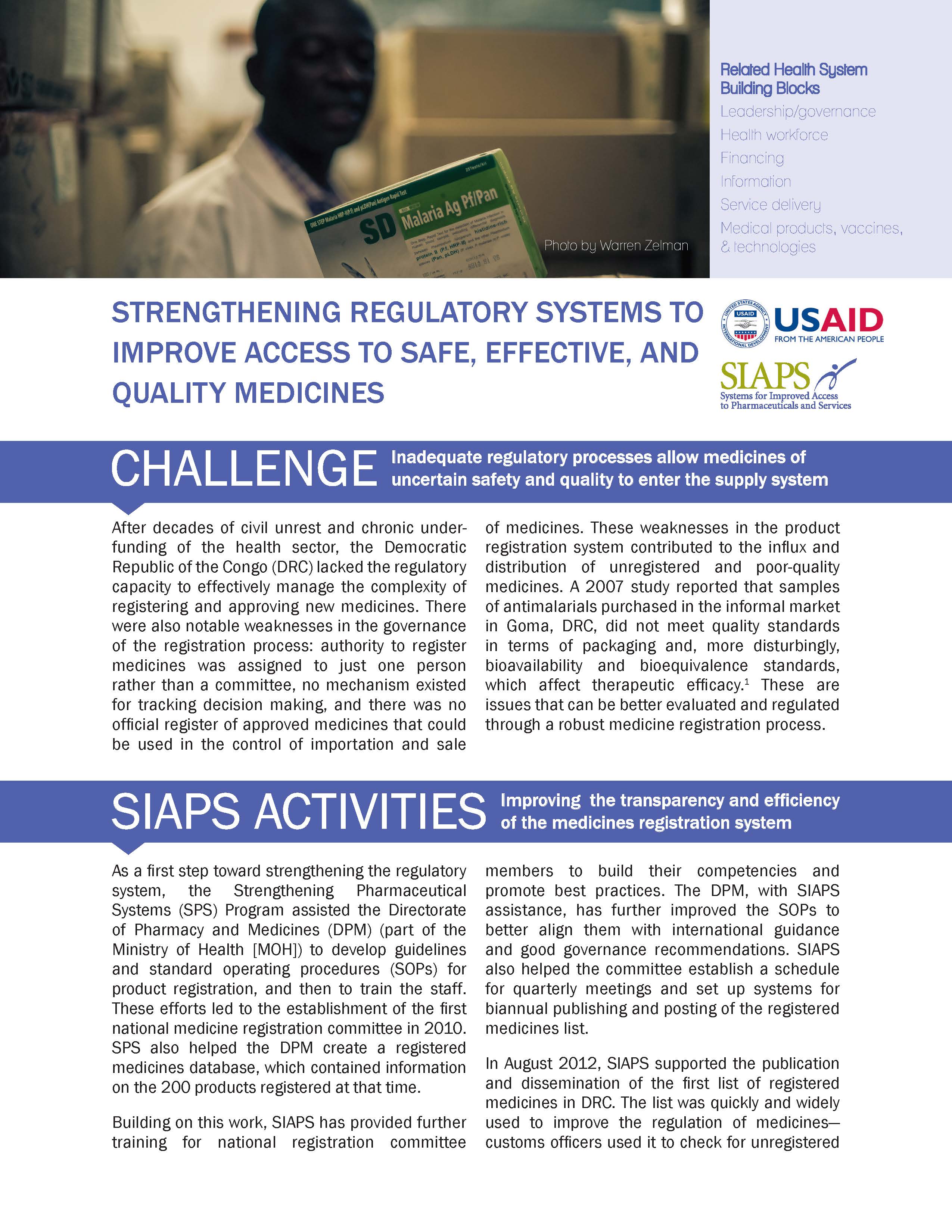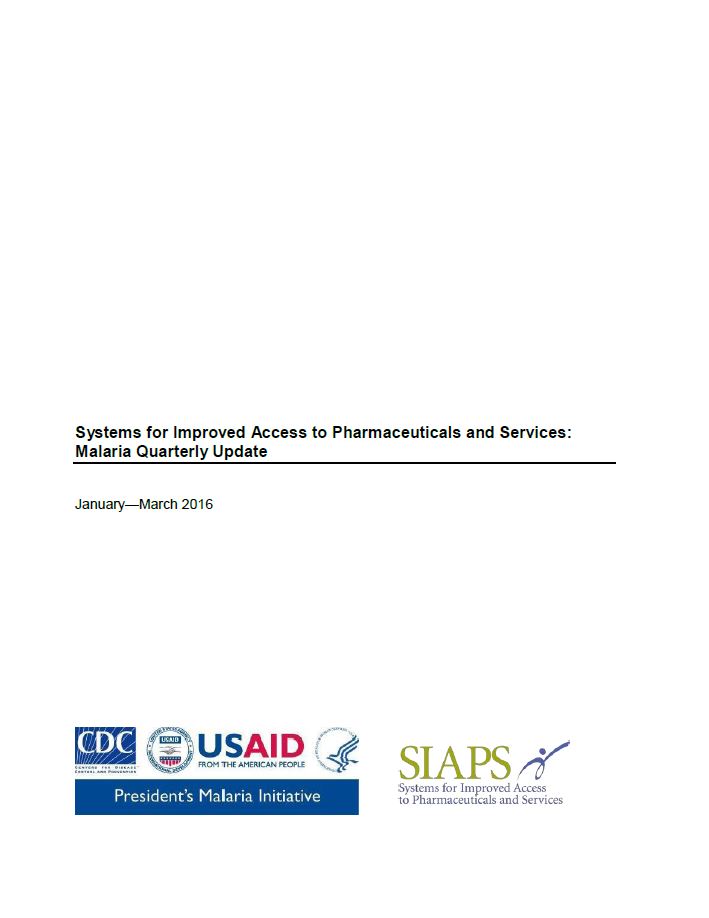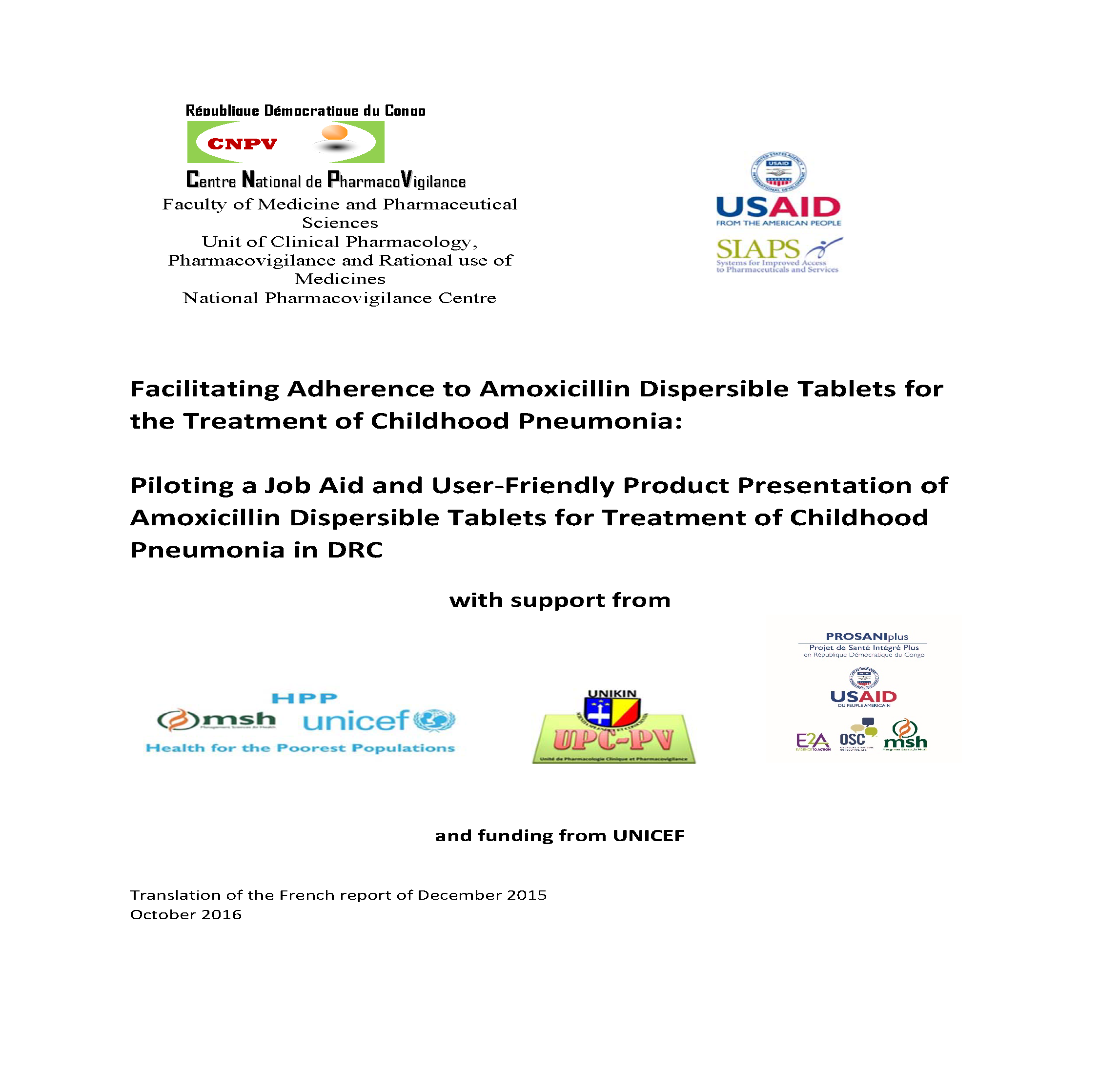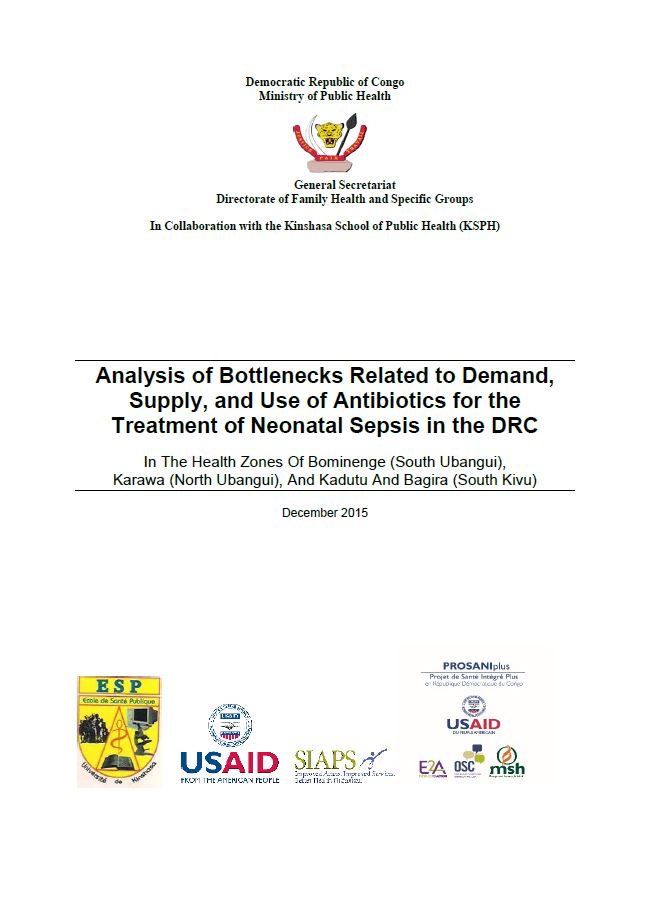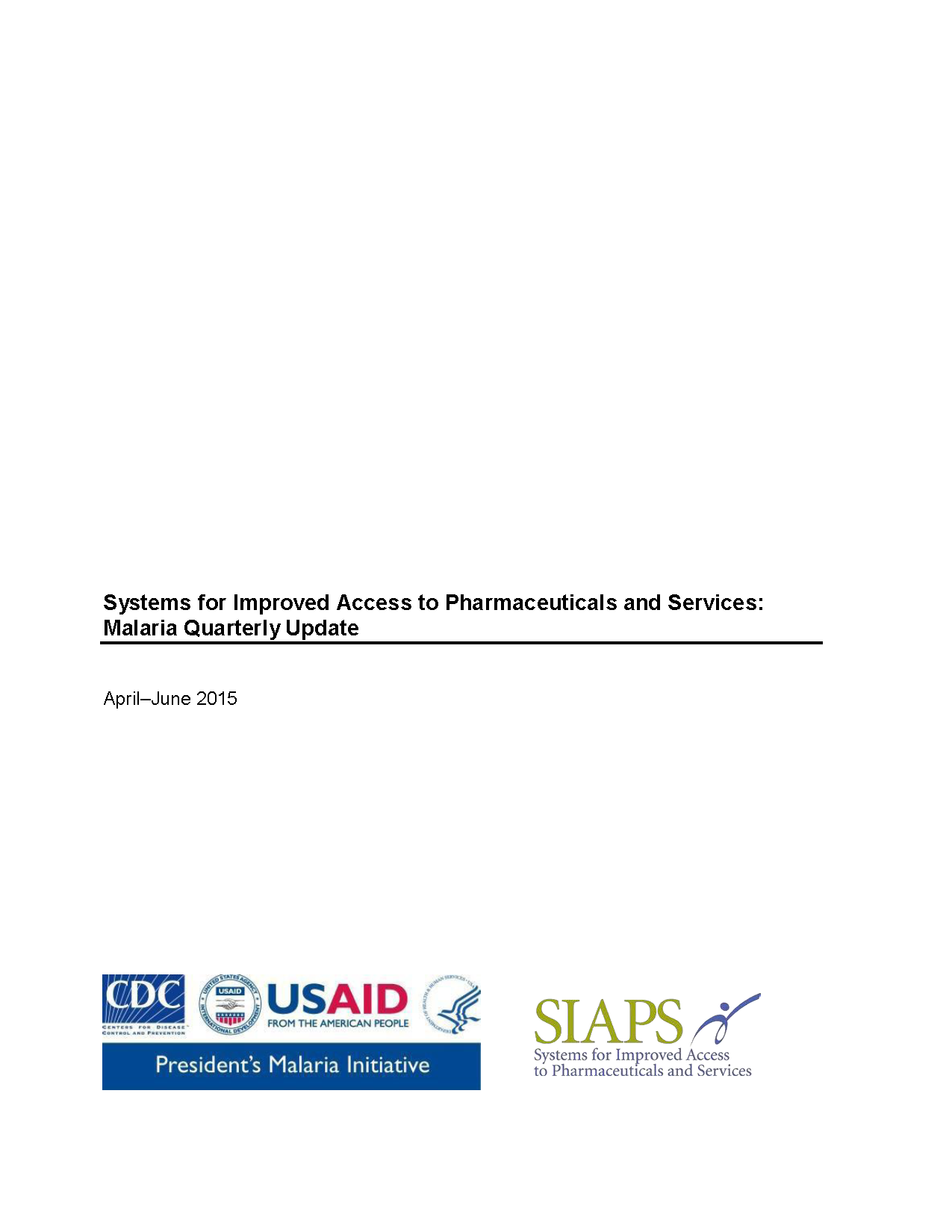SIAPS and its predecessor programs have assisted numerous countries in strengthening governance to promote robust decision making, enhance accountability, reduce opportunities for corruption, and improve efficiencies to enable better access to and use of quality-assured medicines. This compendium draws on these experiences and provides a collection of examples of strategies and approaches for strengthening governance … Read more
Bangladesh, Cameroon, Democratic Republic of Congo, Ethiopia, governance, H Walkowiak, Philippines, S Putter, Sierra Leone, Swaziland, T Hafner, Ukraine
Project dates: October 2011–December 2016
SIAPS has received funding from the US President’s Malaria Initiative (PMI) to work in eight countries—Angola, Burundi, Democratic Republic of the Congo (DRC), Ethiopia, Kenya, Guinea, Mali, and South Sudan—to strengthen pharmaceutical systems for improved malaria control. This report synthesizes the pharmaceutical systems strengthening efforts of SIAPS and documents how the approach was used to support … Read more
A Clark, A Mwansasu, Angola, Burundi, Democratic Republic of Congo, Ethiopia, Guinea, Kenya, Malaria., Mali, PMI, S Doumbia, South Sudan, Technical Report
The goal of this project was to conduct a review of SIAPS TB technical assistance and QuanTB implementation in DRC. Specific objectives were to determine: Key achievements or results of SIAPS QuanTB technical assistance in DRC Experiences and perspectives of the beneficiaries from the NTP Challenges and lessons learned This report summarizes key aspects and results … Read more
Chronic underfunding of the health sector coupled with long-term civil unrest in the Democratic Republic of the Congo (DRC) has contributed to insufficient regulatory capacity to effectively manage the registration and approval of new medicines in the country. In partnership with the USAID-funded SIAPS Program, the country’s Ministry of Health supported a number of broad … Read more
SIAPS technical support has helped strengthen the capacity of the national registration committee and streamline medicines registration. As a result, the number of registered medicines has increased from 200 in 2010 to over 3,000 in 2014; 72% of the medicines included on DRC’s essential medicines list currently have at least one product registered, up from 44% in 2011. The backlog of applications has … Read more
Working closely with the President’s Malaria Initiative (PMI) in both Washington and PMI- focus countries, the US Agency for International Development (USAID)-funded Systems for Improved Access to Pharmaceuticals and Services (SIAPS) Program aims to ensure the availability of quality pharmaceutical products and effective pharmaceutical services in support of PMI objectives. To this end, and based … Read more
Angola, Burundi, capacity building, Democratic Republic of Congo, Ethiopia, governance, Guinea, Malaria., Mali, Niger, Quantification, Quarterly report, South Sudan, Supply chain management, Training
The purpose of this study is to determine the feasibility, acceptability and user friendliness of job aids and dispensing envelopes for facilitating increased adherence to amoxicillin dispersible tablets (DT) for treatment of childhood pneumonia among community health workers (CHWs), facility based health workers and caregivers of children.
This study was initiated by the Direction de la Santé de la Famille et de Groupes Spécifiques (D10) and the Ministry of Public Health and carried out with technical and financial assistance from the Systems for Improved Access to Pharmaceuticals and Services (SIAPS) and Integrated Health Project (PROSANI-Plus) implemented by Management Sciences for Health (MSH). … Read more
According to the World Health Organization (WHO), 1 malaria mortality rates fell by 47% globally, and by 54% in Africa between 2000 and 2013. During this period, an estimated 4.3 million malaria deaths were averted globally, primarily as a result of the scale-up of interventions. However, much remains to be done. Although 55 countries are … Read more
Angola, Democratic Republic of Congo, DRC, Ethiopia, Guinea, Logistics Management Information System, Malaria., Mali, PMI, Quantification, South Sudan, Training
